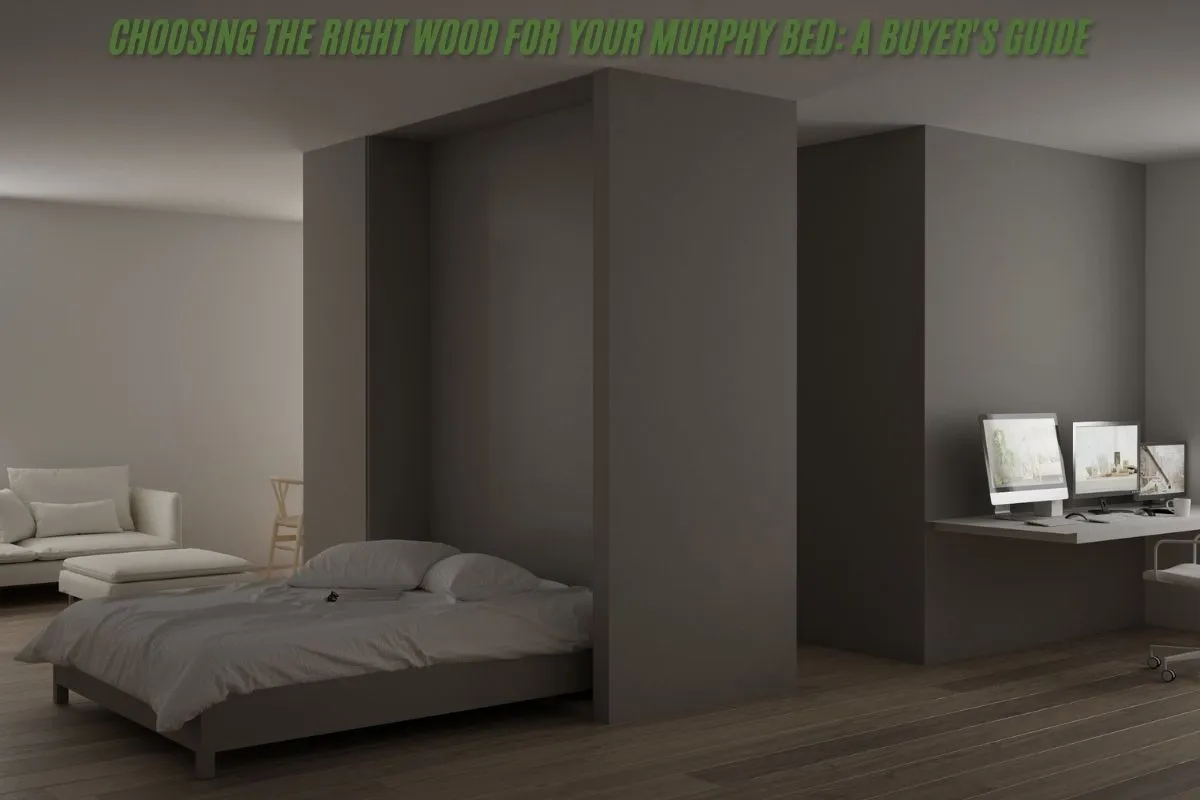A Murphy bed is a fantastic space-saving solution, but choosing the right wood can significantly impact its durability, aesthetics, and overall performance. Let’s delve into the world of wood and help you make an informed decision.
Understanding Wood Types and Their Characteristics
The type of wood you choose for your Murphy bed will influence its weight, durability, and appearance. Here are some popular wood options:
-
Hardwoods:
- Oak: Known for its strength, durability, and classic look. It’s a popular choice for Murphy beds, especially in traditional and modern styles.
- Maple: Another durable hardwood with a smooth, fine-grained texture. It’s often used for furniture that requires a clean, contemporary look.
- Cherry: A beautiful hardwood with a rich, reddish-brown color that darkens over time. It’s often used for high-end furniture and can add a touch of luxury to your bedroom.
- Walnut: A strong, dense hardwood with a dark, chocolatey color. It’s a popular choice for modern and contemporary furniture.
-
Softwoods:
- Pine: A lightweight and affordable wood that’s easy to work with. However, it’s less durable than hardwoods and may be more prone to scratches and dents.
- Poplar: A versatile wood that can be stained or painted to match any décor. It’s a good choice for those on a budget.
Factors to Consider When Choosing Wood
- Durability: Hardwoods are generally more durable than softwoods. Consider the frequency of use and the weight of the mattress and bedding.
- Aesthetics: The wood’s color, grain pattern, and finish can significantly impact the overall look of your Murphy bed.
- Weight: A heavier wood, such as oak or walnut, may require a stronger frame and hardware.
- Cost: Hardwoods are generally more expensive than softwoods. Consider your budget and the desired level of quality.
- Environmental Impact: To minimize your environmental footprint, choose sustainably sourced wood. Look for certifications like the Forest Stewardship Council (FSC).
How to Choose the Right Wood for Your Murphy Bed
Understanding Your Needs:
Before selecting a wood, consider these factors:
- Durability: How often will the bed be used? A hardwood like oak or maple is ideal for frequent use.
- Aesthetics: Do you prefer a classic or modern look? The wood’s grain and color can significantly impact the overall style.
- Budget: Hardwoods tend to be more expensive than softwoods.
- Weight: Heavier woods might require a more robust frame.
Popular Wood Choices for Murphy Beds:
-
Hardwoods:
- Oak: Strong, durable, and classic.
- Maple: Hard, dense, and smooth-grained.
- Cherry: Rich, reddish-brown color that ages beautifully.
- Walnut: Dark, luxurious, and highly durable.
-
Softwoods:
- Pine: Lightweight and affordable, but less durable than hardwoods.
- Poplar: Versatile and paintable, often used as a budget-friendly option.
Tips for Selecting the Right Wood:
- Consult a Woodworker: They can provide expert advice on wood selection and construction techniques.
- Consider the Finish: A natural finish can highlight the wood’s grain, while a painted finish can provide a more modern look.
- Check for Certifications: Look for sustainably sourced wood with certifications like the Forest Stewardship Council (FSC).
- Test the Wood: Ask to see wood samples and feel its texture and weight.
Benefits of a Well-Crafted Murphy Bed:
- Space-Saving: Perfect for small apartments or rooms with limited space.
- Versatile: Can be used as a bed or a desk or office space during the day.
- Aesthetically Pleasing: A well-designed Murphy bed can be a stylish addition to any room.
- Increased Storage: Many Murphy beds come with built-in storage solutions, such as shelves or drawers.
Frequently Asked Questions
Q: How often should I inspect my Murphy bed?
A: It’s recommended to inspect your Murphy bed every six months to ensure all hardware is tight and the mechanism is functioning smoothly.
Q: Can I install a Murphy bed myself?
A: While it’s possible to install a Murphy bed yourself, it’s recommended to hire a professional installer, especially for complex installations.
Q: What type of mattress is best for a Murphy bed?
A: A medium-firm mattress is a good choice for a Murphy bed. Avoid overly thick or heavy mattresses, as they can make it difficult to operate the bed.
By carefully considering these factors, you can choose the right wood for your Murphy bed and create a stylish and functional space-saving solution.
In Conclusion
The right wood can make all the difference in the look, feel, and durability of your Murphy bed. Consider your lifestyle, budget, and aesthetic preferences when making your decision. By carefully selecting the right wood, you can create a functional and stylish piece of furniture that will last for years to come.










